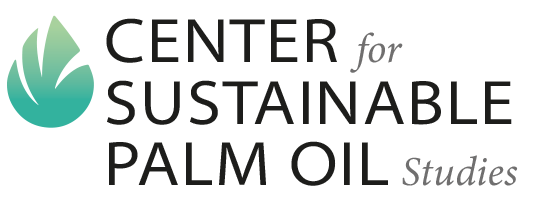
Last month, during COP26, more than 100 countries pledged to end and reverse deforestation by 2030. Right after that, the European Commission published its much-anticipated proposal titled “Proposal for a regulation on deforestation-free products”. The regulation aims to minimise consumption of products coming from supply chains associated with deforestation or forest degradation.
According to the proposal, companies selling soy, beef, palm oil, wood, cocoa and coffee in the European Union will have to ensure traceability and transparency in their supply chains to guarantee that their production processes are not contributing to deforestation.
The EU, for the first time under this proposal, has acknowledged the urgent need for national certification schemes for forest risk commodities, after the committee agreed on the fact that voluntary schemes have been ineffective in offering the required outcomes.
The proposal stated the following: “In terms of policy measures, the OPC [The Open Public Consultation] showed strong support for legally binding options (deforestation-free requirement, mandatory due diligence, mandatory public certification, etc.) while soft, voluntary measures like voluntary due diligence, voluntary labelling or voluntary private certification were considered to lack in effectiveness.”
As indicated by the EU proposal, national schemes, as opposed to voluntary ones, can pave the way for more stringent enforcement of sustainability standards – an area where voluntary certifications have faced criticism in the past. An example of a well-established and successful national certification scheme is the Malaysian Sustainable Palm Oil (MSPO) which has been implemented across 93% of Malaysian palm oil production.
To obtain the MSPO certification, palm oil producers must uphold national laws on environmental conservation and labour rights. Furthermore, the MSPO has proven its effectiveness by taking the necessary steps to correct any misconduct or breaches of local laws. A case in point is when it was found that palm oil mills were polluting local waterways and the discovery was met with immediate corrective actions.
Although the new EU proposal and the call for enforceable national certifications schemes is a major step forward, it was criticised by some environmentalists’ groups, International NGOs, civil society organisations and farmers associations for several reasons.
WWF, Greenpeace and Friends of the Earth Europe responded to the proposal by saying there was a need to include ecosystems like savannahs, grassland, wetlands, peatlands, mangroves, and raised concerns over gaps that may allow breaches of environmental laws and human rights.
Whereas, EuroCommerce said that while the industry is committed to play its part in combating deforestation it would require help and support to identify ‘where the risks of deforestation are’ as they are part of a ‘very complex supply chain’.
Heidi Hautala MEP, Vice President of the European Parliament, member of the Human Rights committee and International Trade committee also commented on the proposal, calling it insufficient and demanded for it to be strengthened to ensure the protection of ecosystems and human rights.
FERN raised their concern arguing the regulation will not help stop deforestation and called for the EU to build agreements with producer countries to tackle the root causes of deforestation, such as poor forest governance and unclear land tenure.
COCERAL, FEDIOL and FEFAC, together representing the EU grain and oilseed trade, also raised concerns over the need to engage producer countries. While they applauded the EU’s efforts to take the lead in the global fight against deforestation, they also emphasised the importance of tackling deforestation in partnership with producing countries.
Notably, in a joint statement, the organisations suggested that the requirements of the new legislation prioritise ‘cleaning up’ the EU’s supply chains from goods potentially associated with deforestation, rather than focusing on tackling the root causes of the issue.
Indeed, it is crucial to recognise the socio-economic dynamics of producing countries. In the case of land tenure and human rights, compliance with local laws governing these issues is the strongest available tool to respect the local communities and the workers in the sector.
Hence, national sustainability schemes have demonstrated how certifications can successfully be scaled up across entire nations as compared to voluntary schemes that have been rather ineffective in ushering change on a national level. In such cases, the EU should consider engaging its partner countries to protect human rights and biodiversity in compliance with national laws governing sustainability practices.
The MSPO certification scheme, for instance, could be subjected to third-party evaluation to determine its credibility in a quality assurance. Indeed, its effectiveness has been supported by the findings of external organisations such as the Global Forest Watch study conducted by the World Resources Institute.
The study found that deforestation rates in Malaysia have steadily decreased in the last four years. Similarly, in the case of the MSPO scheme, there is an ongoing process of strengthening due diligence in the palm oil sector to ensure the appointment of labour agencies that comply with human rights laws and regulations.
While the new EU proposal is a welcomed step towards the right direction of a greater acknowledgement of national certification schemes, it is vital that the EU follows this move with a new-found willingness to engage with the producers of forest risk commodities. After all, the EU market has the greatest demand for sustainability globally and thus the EU holds the power to shift the wider debate on curbing deforestation.
Whether forest risk commodities will enter the EU market, or another part of the world with less stringent environmental regulation, violations should be punished by national laws in the producer countries if we wish to tackle sustainability at source.
The EU putting support behind national certification schemes is likely to shift wider attitudes around sustainability certifications. At best this could open an honest dialogue with producer countries that have often felt left behind by decision making in Brussels as well as cement the economic block’s environmental influence on a global level.







